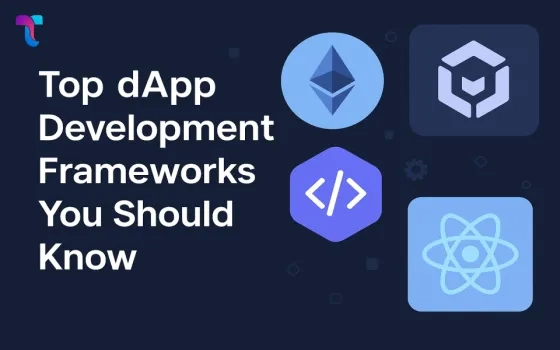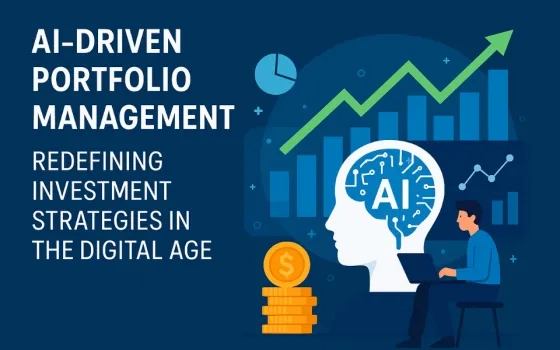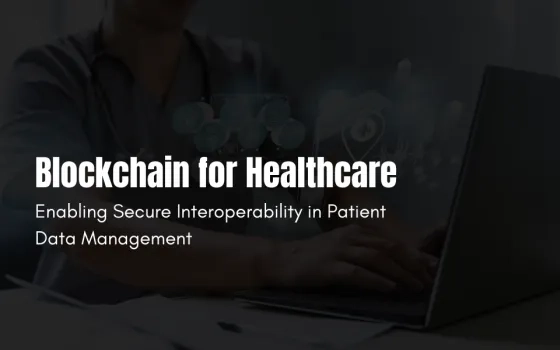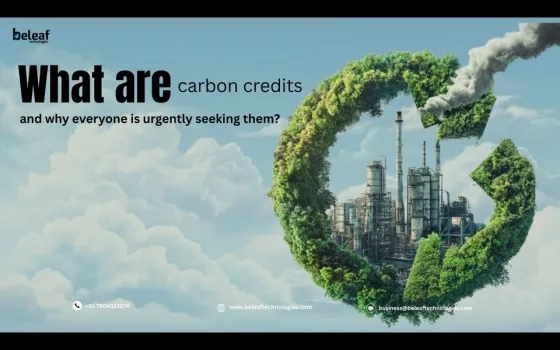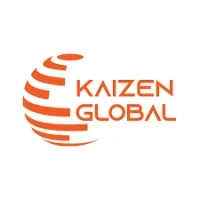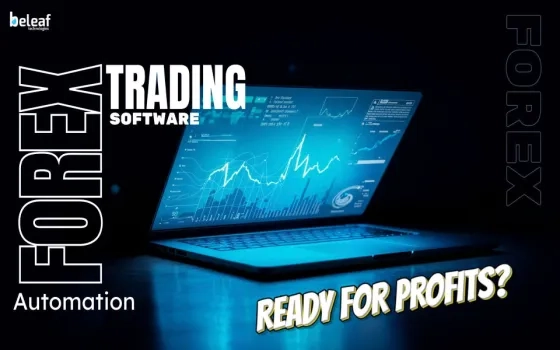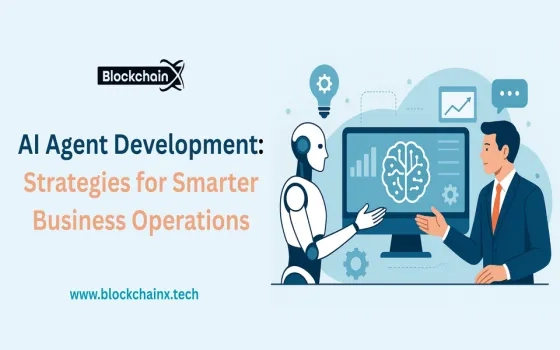Decentralized applications, or dApps, have become the driving force behind the next generation of the internet, Web3. From DeFi and gaming to NFTs and DAOs, dApps are reshaping how users interact with digital systems.
But behind every successful dApp lies a robust development framework that streamlines smart contract integration, UI design, and blockchain interaction.
As a business owner or startup planning to launch a dApp, choosing the right framework is critical. It determines your app's scalability, development time, cost, and security. In this blog, we explore the top dApp development frameworks you should know in 2025, helping you understand their strengths and where they shine.
Why Frameworks Matter in dApp Development?
The dApp development landscape has evolved rapidly in recent years. What once required extensive blockchain-specific knowledge is now more accessible, thanks to advanced frameworks. Here’s why frameworks play such a pivotal role in the development process.
- Simplified Blockchain Interaction
Most dApp frameworks offer prebuilt modules that handle complex blockchain calls, transactions, and event monitoring reducing development time significantly.
- Smart Contract Integration
Top frameworks support seamless integration and deployment of smart contracts on networks like Ethereum, Polygon, BNB Chain, and others.
- Security and Testing Support
Security is a huge concern in Web3. Frameworks come with unit testing tools and vulnerability detection systems to ensure smart contracts are battle-tested before launch.
- Multi-Chain Development Support
New-age frameworks are chain-agnostic, allowing developers to create dApps for Ethereum, Avalanche, Solana, and more with minimal configuration changes.
- Rich Ecosystem and Documentation
Community-supported frameworks provide access to well-documented libraries, UI templates, wallets, oracles, and decentralized storage integrations.
With ready-to-use templates and deployment scripts, you can fast-track your development and reduce the overall cost of building and launching your dApp.
For startups and enterprises, frameworks serve as the foundation that connects smart contracts, front-end interfaces, user wallets, and blockchain networks efficiently.
Top 6 dApp Development Frameworks in 2025
As decentralized applications (dApps) continue to disrupt traditional industries, developers need robust frameworks to build, test, and deploy them efficiently. Whether you're developing a DeFi protocol, NFT marketplace, or DAO platform, using the right framework can streamline your workflow and ensure your smart contracts run smoothly on the blockchain.
Below are six leading dApp development frameworks worth exploring in 2025:
Truffle
Truffle is one of the most established Ethereum dApp development frameworks. It offers a comprehensive suite of tools for compiling, testing, and deploying smart contracts. With support for automated testing using Mocha and Chai, Truffle simplifies debugging during development.
Its migration system ensures smooth contract deployment across different networks, and Truffle Boxes provide pre-built project templates to speed up development. The framework integrates well with Ganache and Drizzle, making it ideal for full-stack blockchain projects. Truffle is beginner-friendly, yet robust enough for complex applications in DeFi and NFTs.
Brownie
Brownie is a Python-based dApp development framework that has gained popularity among developers who prefer Python over JavaScript. It supports Ethereum Virtual Machine (EVM)-compatible blockchains and provides tools for compiling, testing, and deploying smart contracts.
With built-in support for Pytest, Brownie makes test-driven development smooth and efficient. Its interactive console allows real-time contract interaction, which is excellent for debugging and experimentation.
Embark
Embark is an all-in-one framework that enables easy development and deployment of dApps. It supports Ethereum, IPFS, and Whisper, allowing developers to build fully decentralized applications. Embark automatically deploys contracts as needed and tracks their dependencies, saving time during development.
Its dashboard provides real-time feedback, which simplifies the debugging process. Embark also supports frontend integration using React, Vue, or Angular, and works with traditional web development tools. Its plug-and-play architecture makes it ideal for developers aiming to build scalable and modular dApps from scratch.
Ape Framework
Ape is a modern Python-based smart contract development and testing framework, tailored for EVM-compatible chains. It emphasizes testability, developer productivity, and seamless integration with other tools in the Python ecosystem.
Ape offers plugins for deployment, testing, and local blockchain simulation. Its rich CLI and plugin architecture allow for powerful extensibility, making it a strong choice for research-heavy projects or institutional blockchain solutions.
It also supports integrations with Hardhat, Infura, and Tenderly. Ape is gaining traction in the ecosystem for its clean syntax and robust development environment for Python-centric teams.
Hardhat
Hardhat is a powerful Ethereum development framework designed for professionals building sophisticated dApps. It provides a flexible and extensible environment with features like Solidity debugging, script automation, and built-in testing using Mocha and Chai. Developers can simulate a local Ethereum network using Hardhat Network to test smart contracts instantly. With advanced stack traces and error messages, debugging becomes seamless. It also supports TypeScript, enabling robust typing and better development workflows.
Hardhat is particularly favored in large-scale DeFi and NFT projects due to its speed, plugin ecosystem, and integrations with tools like Ethers.js and Waffle. Its CLI is beginner-friendly, making it an ideal choice for both new and experienced developers.
Scaffold-ETH
Scaffold-ETH is a development stack that rapidly accelerates Ethereum dApp development. Built on top of Hardhat, it comes preloaded with smart contract templates, a frontend interface, and real-time Solidity editing tools.
It allows developers to prototype and iterate smart contracts while instantly testing UI integration, all in one workspace. Scaffold-ETH is open-source and perfect for hackathons, POCs, and MVPs, helping developers avoid time-consuming setups.
The platform includes MetaMask integration, React frontend templates, and easy deployment scripts. Its ability to instantly reflect smart contract changes in the UI without complex rebuilds makes it popular among agile teams and fast-paced blockchain startups.
Comparison Table: Top dApp Development Frameworks (2025)
|
Framework
|
Primary Language
|
Best For
|
Key Features
|
Learning Curve
|
|
Truffle
|
JavaScript
|
Beginners & mid-sized dApp projects
|
Contract compilation, migration system, Truffle Boxes, Ganache & Drizzle support
|
Moderate
|
|
Brownie
|
Python
|
Python devs building DeFi & NFT platforms
|
Pytest support, EVM compatibility, interactive console, Web3.py integration
|
Easy–Moderate
|
|
Embark
|
JavaScript
|
Modular dApps using IPFS, Whisper, Ethereum
|
Full-stack dev, auto-deployment, real-time feedback dashboard
|
Moderate
|
|
Ape Framework
|
Python
|
Research-heavy or institutional projects
|
Plugin-based, CLI tools, test automation, supports Hardhat & Infura integration
|
Moderate–Advanced
|
|
Hardhat
|
JavaScript/TypeScript
|
Large-scale DeFi or NFT projects
|
Local EVM testing, Solidity debugger, stack traces, plugin ecosystem
|
Moderate
|
|
Scaffold-ETH
|
JavaScript
|
MVPs, Hackathons, fast UI-integrated dApps
|
Real-time contract prototyping, React frontend, pre-built templates
|
Easy
|
Final Thoughts
The success of your decentralized application depends not just on your idea but also on how efficiently you bring it to life. Choosing the right dApp development framework is a strategic decision—it impacts performance, user experience, and security.
If you're building a smart contract–intensive app or DeFi platform, Hardhat gives you control and flexibility. For projects needing fast deployment with minimal backend effort, Moralis provides a complete suite of APIs and tools.
Regardless of which framework you choose, it's important to work with an experienced dApp development company which understands the evolving Web3 ecosystem and can guide you from ideation to deployment.



